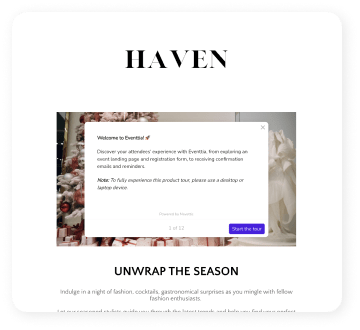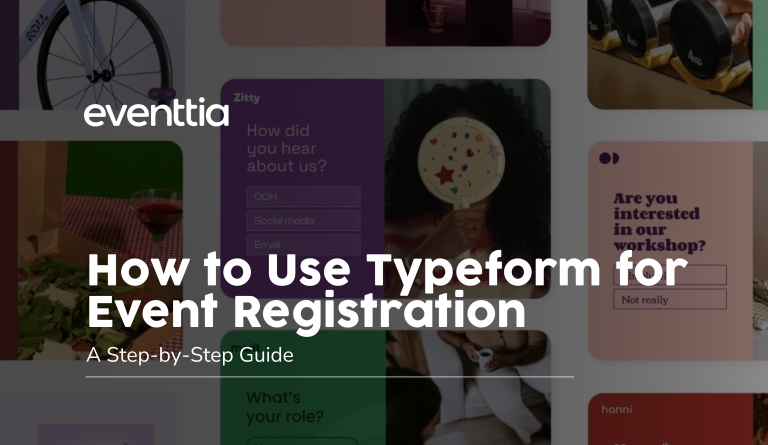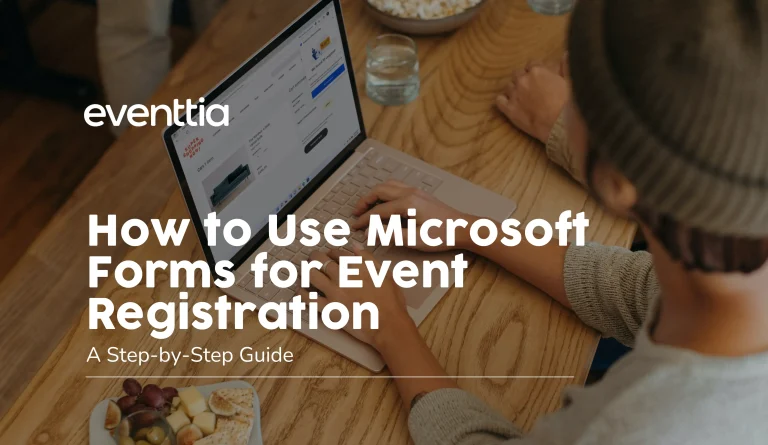In-store events are promotional activities within a physical retail space, such as a store or a shopping center, focused on creating an exciting shopping experience.
According to Shopify, “Customers are getting more selective about the brands they associate with, and the in-store experience can help you stand out from the crowd. In an age of cut-throat competition, retail events are a great way to engage with your customers and form relationships. It engages and invites them to experience your brand in person.”
In-store events are usually associated with brand and product-related experiences. Retail events are particularly effective in creating unique product experiences because they offer a more immersive and interactive shopping environment.
In contrast to traditional shopping, where customers browse and purchase products, retail events are designed to allow customers to interact with products and brands in a more meaningful and memorable way.
As the Unibail-Rodamco-Westfield report highlights, “59% of shoppers expect the majority of retail space to be dedicated to offering up experiences by 2025. By 2027, 75% of shoppers expect to see this. With 81% of customers globally willing to pay more for experiences, the retail tipping point is likely to drive revenue growth for experiential retailers in the future.”
The report explains, “Shoppers want to see more creative, health and gaming experiences in store, in particular, as well as ones that help them to improve themselves. The retailers of the future will trade in the business of upskilling as well as selling.”
With this in mind, by running in-store events and designing memorable and immersive experiences, you can differentiate your brand from competitors and build lasting customer relationships.
Discover how Eventtia helps world-leading brands digitize and scale their events
Learn more
Characteristics of In-Store Retail Events
Not all events are created equal, and the success of an in-store retail event depends on several key factors. Let’s explore the characteristics of impactful in-store retail events and how you can leverage them to design engaging experiences for your customers.
✅ Relevance
Relevance is a crucial characteristic of in-store retail events because it ensures the event attracts and engages the target audience. When planning an event, it’s essential to consider the brand’s overall message and values and how it will reflect those elements.
The event should align with the brand’s product offerings and showcase them in a way that resonates with the audience. Also, in-store retail events must be relevant to the brand and product offerings and align with the target audience’s interests and preferences.
For example, a sports apparel brand could host a basketball skills competition or a fitness challenge that aligns with its product’s functionality. Similarly, a beauty brand could host a makeup tutorial event that showcases its latest products and trends.
✅ Creativity
Creativity sets the event apart from others and captures customers’ attention. You can express this characteristic through the event’s design, theme, activities, and overall experience.
By incorporating creative elements into the event, you can provide customers with a unique and memorable experience that they will remember long after the event. To achieve creativity, you must think outside the box and offer something new and exciting that customers have not seen before.
For instance, a sporting goods retailer could host an event simulating an Olympic Games-style competition where customers can test the store’s equipment and compete against each other. A food retailer could offer cooking classes or tastings that showcase unique and exotic ingredients.
Or, a home decor store could host a do-it-yourself (DIY) workshop where customers can create special home decor items using the store’s products. Similarly, a pet store could host a fashion show featuring creative and unique pet outfits showcasing their products.
✅ Interactivity
Interactivity is a fundamental characteristic of in-store retail events as it aims to engage customers deeper and create an immersive experience. Encouraging active participation and interaction can foster a sense of connection and excitement among attendees.
To achieve interactivity, you can incorporate various elements that involve customers in the event. For instance, a toy store can host a game day event where customers can play and interact with the latest toys and games. This could include game demonstrations, competitions, and hands-on experiences that allow customers to try out different toys firsthand.
Similarly, a kitchen appliance store could organize a cooking class for their in-store event. Customers can actively participate in the class, learning how to use the store’s latest kitchen gadgets and appliances.
They may have the chance to prepare and taste different dishes, ask questions, and receive expert guidance from professional chefs or knowledgeable store staff. This hands-on experience showcases the products and empowers customers to gain practical skills and knowledge.
In addition to these examples, interactive elements can also include product demonstrations, workshops, DIY stations, and interactive displays. The key is to create opportunities for customers to engage with the products, ask questions, provide feedback, and have a memorable and enjoyable experience within the retail environment.
You can foster a stronger connection between customers and their brands by prioritizing interactivity in in-store retail events. This engagement increases customer satisfaction and encourages word-of-mouth recommendations and repeat visits. Ultimately, interactivity enhances the overall event experience and creates a positive association with the brand.
✅ Exclusivity
By offering exclusive access to products, discounts, or experiences, you can generate excitement and heightened interest among your target audience.
For example, a luxury fashion brand can host an invitation-only event where select customers, influencers, or VIPs are granted exclusive access to a sneak peek of their latest collection before it hits stores. This creates a sense of exclusivity and privilege, making attendees feel part of an elite group that gets a first look at the brand’s exclusive offerings.
Similarly, a technology store can organize a pre-launch event that gives attendees exclusive access to the latest gadgets and products before they are released to the general public. This creates a buzz around the event and cultivates a sense of anticipation and excitement among tech enthusiasts eager to get their hands on the newest and most cutting-edge devices.
In addition to exclusive product previews, you can offer limited-time discounts, promotions, or bundled packages during the event. For example, a beauty store could provide exclusive discounts or gift-with-purchase offers to attendees, giving them a special incentive to purchase during the event.
The exclusivity of an in-store retail event enhances the overall customer experience by making attendees feel privileged and valued. It cultivates a sense of belonging and creates a unique opportunity for customers to access products or experiences that are not readily available to the general public.
✅ Personalization
Personalization enables in-store retail events to create unique and tailored customer experiences. By understanding and catering to individual needs and preferences, you can establish a deeper connection and foster a sense of loyalty among attendees.
One example of personalization in an in-store retail event is a personalized book club hosted by a bookstore. Customers can discuss their favorite books, genres, and authors during this event. They can share their reading experiences and receive personalized book recommendations based on their interests, allowing them to discover new titles that resonate with their tastes. By providing a platform for meaningful conversations and individualized suggestions, the bookstore offers a personalized experience and strengthens the bond between the customers and the store.
Similarly, a beauty store can offer personalized makeup consultations for in-store events. Professional makeup artists or beauty experts can analyze customers’ skin types, tones, and preferences and provide tailored recommendations on the best products to enhance their features. This personalized approach ensures customers receive individualized attention and advice, leading to a more satisfying and compelling shopping experience. It also showcases the store’s commitment to addressing customers’ unique needs, building trust and loyalty.
Personalization in in-store retail events goes beyond customization—it aims to create a sense of connection and understanding between the brand and the customer. By acknowledging and catering to individual preferences, you demonstrate that you value your customers as individuals, which can result in increased customer satisfaction, repeat visits, and positive word-of-mouth recommendations.
Personalization as a characteristic of in-store retail events enhances the overall customer experience, fostering a deeper connection and establishing a sense of loyalty and trust between customers and the brand.
✅ Entertainment
Incorporating entertainment elements into the event can improve the overall experience and leave a lasting impression on attendees.
For instance, a music store can host a live music performance as part of their in-store event. This could involve showcasing local talent or featuring a well-known artist. The live performance creates a vibrant ambiance, attracting music enthusiasts and creating a sense of excitement within the store. It allows customers to enjoy the music, interact with musicians, ask questions, and even purchase albums or merchandise.
This entertainment experience can generate a sense of community and connection among attendees and reinforce the store’s association with the music world.
Similarly, a home goods store can organize a holiday decorating event incorporating various entertainment elements. Alongside the store’s holiday product offerings, the event can feature festive music playing in the background, creating a cheerful and upbeat atmosphere. Refreshments can be provided, such as hot cocoa or holiday-themed treats, adding to the overall enjoyment of the event.
Additionally, interactive decorating activities can be set up, allowing customers to participate in hands-on experiences like ornament crafting or wreath-making workshops. These engaging activities entertain customers and provide them with inspiration and ideas for their holiday decorations. The event becomes a memorable and enjoyable experience that associates the store with the joy and spirit of the holiday season.
By incorporating entertainment into in-store retail events, you can create a positive and dynamic atmosphere that captures the attention and interest of customers. This enjoyable experience increases customer satisfaction, creates a sense of fun and excitement, and can boost sales and brand loyalty. Ultimately, entertainment adds a layer of enjoyment and memorability that sets the event apart and encourages customers to continue engaging with the brand.
✅ Education
In-store retail events provide opportunities for customers to learn more about the brand, products, or industry, offering educational value that enhances their shopping experience. You can empower customers, build trust, and position yourself as an industry expert by offering educational opportunities.
For example, a gardening store can host a workshop on gardening techniques. During the workshop, knowledgeable staff or gardening experts can share tips and insights on plant care, landscaping ideas, or sustainable gardening practices. Customers can learn practical skills that they can apply to their gardening endeavors, fostering a sense of confidence and expertise.
Additionally, the store can showcase the latest gardening tools and products, highlighting their features and benefits and allowing customers to see them in action. This educational approach adds value to the event and positions the store as a go-to resource for gardening enthusiasts.
Similarly, a tech store can organize workshops or tutorials that educate customers about the latest technology trends or provide guidance on using their products effectively. This can include sessions on setting up smart home devices, troubleshooting common tech issues, or exploring advanced features of gadgets.
By providing educational content, the store helps customers make informed purchasing decisions and ensures they get the most out of their technology purchases. This education-based approach fosters a sense of trust and establishes the store as a reliable source of information and expertise in the tech industry.
In-store retail events prioritizing education create a unique opportunity for customers to expand their knowledge, learn new skills, and gain insights directly from industry professionals. By offering educational value, you can enhance the shopping experience and build long-term customer relationships based on trust and expertise.
Customers are more likely to return to a store that has provided them with valuable knowledge and continue to engage with the brand beyond the event.
✅ Sustainability
In-store retail events should be designed sustainably, minimizing environmental impact and promoting eco-friendly practices to align with customer values and preferences. Sustainability is a critical characteristic of in-store retail events that reflects the growing importance of environmental consciousness among customers.
By prioritizing sustainability, you will demonstrate your commitment to reducing environmental impact while aligning with customer values and preferences. To incorporate sustainability into in-store retail events, you can take several measures. First, minimize waste generation by opting for reusable or recyclable materials for event decorations, signage, and packaging. This reduces the amount of single-use plastic and other non-recyclable materials in landfills.
Second, collaborate with eco-friendly vendors and suppliers, prioritizing sustainable practices. This can involve partnering with brands that utilize sustainable sourcing methods, eco-friendly manufacturing processes, or products made from recycled materials. By showcasing these sustainable options during the event, you can raise awareness and educate customers about the importance of making environmentally conscious choices.
Furthermore, you can implement sustainable initiatives as part of their events. For instance, you can encourage attendees to bring their reusable bags or containers for product samples or giveaways. You can also set up recycling stations throughout the event space to facilitate proper waste disposal and encourage attendees to recycle.
Also, you can go beyond the event and organize sustainability-focused activities. This can include hosting workshops or talks on sustainable living, offering tips on reducing waste or highlighting eco-friendly practices within the industry. Empower customers to adopt sustainable habits beyond the event by providing educational opportunities and practical advice.
By incorporating sustainability as a characteristic of in-store retail events, you can align with the values and preferences of environmentally conscious customers. This enhances the overall event experience and strengthens the brand’s reputation as an environmentally responsible organization.
Ultimately, integrating sustainability into in-store retail events contributes to a greener future and fosters a positive perception of the brand among customers who prioritize sustainable practices.
✅ Measurability
By defining clear metrics and tracking relevant data, you can evaluate the event’s success and identify improvement areas. One way to measure the impact of an in-store retail event is by tracking event attendance. The number of attendees provides insight into the event’s reach and popularity.
By comparing attendance numbers to previous events or industry benchmarks, you can gauge the event’s success in attracting and engaging customers.
Social media engagement is another measurable metric to assess the impact of your in-store retail event. You can track metrics such as likes, shares, comments, and event-specific hashtags by monitoring social media platforms. High levels of engagement indicate that the event resonated with attendees and generated interest among their social media networks.
Sales data is a crucial measurement for evaluating the success of an in-store retail event. Track the sales of specific products promoted or overall sales during the event. Comparing sales figures to baseline or projected numbers provides insights into the event’s impact on driving purchases and increasing revenue.
Customer feedback is an invaluable source of information for measuring the success of an in-store retail event. Collect feedback through surveys, comment cards, or online reviews. Analyzing feedback will help you understand customer satisfaction, identify areas of improvement, and gather insights for future event planning.
Additionally, measure the impact of personalized consultations or demonstrations offered during the event. Tracking the number of consultations or customer inquiries related to the event can help assess the effectiveness of these customized experiences in driving customer engagement and influencing purchasing decisions.
By leveraging measurable metrics, you can evaluate the success of your in-store retail events and make data-driven decisions. This allows you to identify strengths and weaknesses, refine your strategies, and improve future event planning. Measurability ensures you can continuously optimize in-store events to deliver the best possible customer experiences and achieve your objectives.
Wrap-up
In-store retail events offer a powerful tool for retailers to engage with customers and create memorable experiences. By designing events relevant to the brand and target audience, incorporating elements of creativity, interactivity, exclusivity, personalization, entertainment, education, and sustainability, and measuring their impact, retailers can differentiate themselves from competitors and build lasting customer relationships.
These characteristics provide a framework for designing impactful in-store events beyond traditional shopping experiences. They create a sense of excitement, connection, and entertainment while also offering educational value and promoting sustainable practices. By prioritizing these characteristics, retailers can enhance the overall customer experience, foster brand loyalty, and drive revenue growth.
In an era where customers are increasingly selective about the brands they associate with, in-store retail events allow them to stand out from the competition and form meaningful connections with customers. By leveraging the power of events, retailers can create immersive and interactive environments that allow customers to engage with products and brands more meaningfully. This engagement boosts customer satisfaction and encourages word-of-mouth recommendations and repeat visits.
As the retail landscape continues to evolve, the importance of in-store events is expected to grow. Customers increasingly seek unique experiences and are willing to pay more for them. By embracing the characteristics of impactful in-store events, retailers can stay ahead of the curve and meet customer expectations.
In-store retail events offer a valuable strategy for retailers to pack their stores with customers. By considering the relevance, creativity, interactivity, exclusivity, personalization, entertainment, education, sustainability and measuring the impact of these events, retailers can create experiences that leave a lasting impression. By delivering exceptional events, retailers can differentiate themselves, build strong customer relationships, and thrive in an increasingly competitive retail landscape.
Discover how Eventtia helps world-leading brands digitize and scale their events
Learn more
Share















